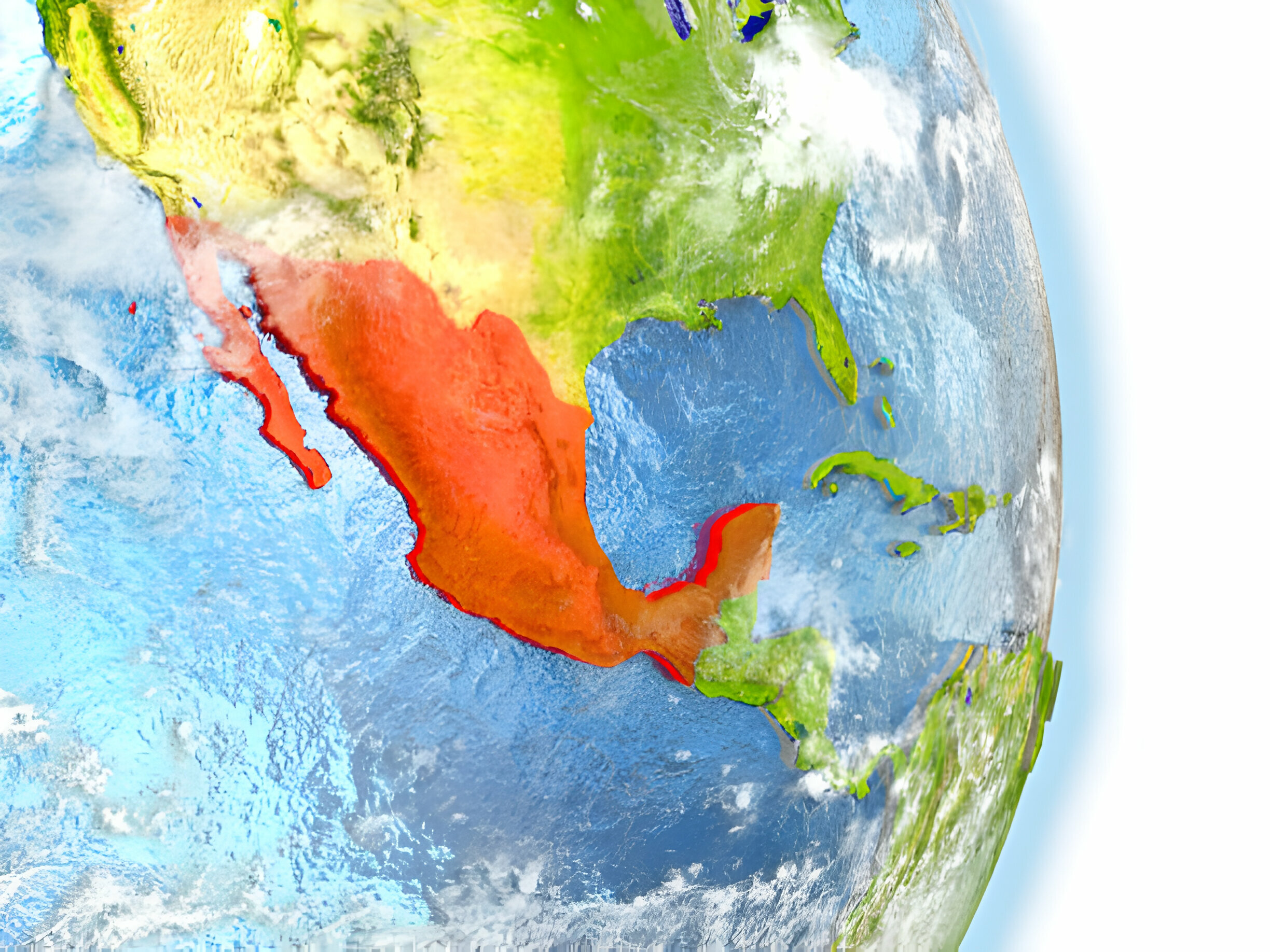Imagine Mexico as a beating heart in the fight against climate change, pulsating with both vulnerability and resilience. Explore how deforestation, urbanization, water scarcity, agriculture, coastal risks, and biodiversity loss intertwine to shape Mexico’s climate landscape. Discover the proactive policy measures taken to mitigate global warming effects and Mexico’s crucial role in international climate agreements. Delve into ‘Mexico Climate Change and Contribution to Global Warming’ for an eye-opening journey through environmental challenges and solutions.
Mexico’s Vulnerability to Climate Change
You’re particularly vulnerable to the impacts of climate change due to your geographical location and reliance on agriculture. Mexico faces challenges like extreme weather events, affecting crop yields and water availability. To address these issues, adaptation strategies are crucial. Implementing sustainable resource management practices can help mitigate environmental impacts while ensuring long-term agricultural viability. Community resilience plays a key role in preparing for and responding to climate-related disasters. By fostering collaboration and sharing knowledge, communities can better withstand the challenges posed by a changing climate. It is essential to prioritize proactive measures that enhance Mexico’s ability to adapt to environmental changes while safeguarding its agricultural sector and overall well-being against the threats brought on by global warming.
Impact of Deforestation on Mexico’s Climate
The impact of deforestation on Mexico’s environment is significant. Forest restoration plays a crucial role in mitigating this issue by enhancing carbon sequestration and preserving ecosystem services. Land use practices that involve clearing forests can disrupt the balance of ecosystems, leading to a cascade of negative effects on biodiversity and climate impact. By promoting forest restoration efforts, Mexico can combat the adverse consequences of deforestation and help maintain its environmental sustainability. Carbon sequestration through reforestation contributes to reducing greenhouse gas emissions, ultimately aiding in the fight against global warming. Protecting Mexico’s forests not only benefits local communities but also plays a vital role in addressing broader environmental challenges on a global scale.
Urbanization and Greenhouse Gas Emissions in Mexico
Urbanization in Mexico contributes to increased greenhouse gas emissions, impacting the environment. Urban sprawl and rising populations lead to higher energy consumption, increasing the carbon footprint of cities. Transportation emissions play a significant role as more vehicles hit the roads due to urban expansion. The concentration of pollution sources in urban areas worsens air quality and affects public health. Efforts to mitigate these effects include promoting sustainable urban planning, enhancing public transportation systems, and encouraging the use of renewable energy sources. By addressing these challenges, Mexico can work towards reducing its contribution to global warming while creating healthier and more environmentally friendly cities for its residents and future generations.
Water Scarcity and Climate Change in Mexico
When facing water scarcity in urban areas, consider implementing sustainable practices to conserve and manage this vital resource effectively. Drought resilience is crucial as Mexico grapples with changing rainfall patterns leading to prolonged dry spells. Water conservation measures are essential to combat aquifer depletion, a pressing issue exacerbated by desertification impacts. By adopting efficient irrigation methods and promoting rainwater harvesting, communities can mitigate the strain on dwindling water sources. Understanding the interconnectedness of climate change and water scarcity is key to developing long-term solutions that ensure access to clean water for all. Embracing sustainable practices not only aids in addressing immediate challenges but also fosters a more resilient and water-secure future for Mexico’s urban populations.
Agriculture and Climate Change Adaptation in Mexico
If you’re looking to enhance agricultural practices in a changing environment, consider integrating climate-resilient techniques for sustainable farming.
- Soil Conservation
- Implement cover cropping to protect soil structure.
- Practice minimal tillage to reduce erosion.
- Crop Diversity
- Rotate crops to improve soil health and prevent pest outbreaks.
- Water Management
- Utilize drip irrigation systems for efficient water usage.
Renewable Energy Initiatives in Mexico
Now, let’s delve into renewable energy initiatives in Mexico. Embracing solar power, wind energy, and geothermal resources is crucial in reducing the country’s carbon footprint. By investing in these sustainable sources of energy, Mexico aims to decrease its reliance on fossil fuels and mitigate climate change effects. Improving energy efficiency through innovative technologies not only benefits the environment but also bolsters Mexico’s economy by creating new green jobs and fostering a more sustainable future for generations to come. The shift towards renewable energy plays a significant role in combating global warming while positioning Mexico as a leader in environmental stewardship. Through strategic planning and implementation, Mexico is paving the way for a greener tomorrow.
Coastal Vulnerability and Rising Sea Levels
Amidst coastal vulnerability and rising sea levels, embracing renewable energy sources can help mitigate the impacts of climate change in Mexico. By focusing on coastal adaptation and implementing effective adaptation strategies, Mexico can enhance its climate resilience and combat the challenges posed by sea level rise and coastal erosion. To enjoy what you’re reading, consider the following:
- Implementing Nature-Based Solutions:
- Utilizing mangroves and wetlands for natural protection.
- Investing in Green Infrastructure:
- Building artificial reefs to reduce wave impact.
- Community Engagement:
- Involving local communities in decision-making processes for sustainable coastal development.
These approaches not only address immediate concerns but also foster long-term sustainability along Mexico’s coastlines.
Biodiversity Loss and Climate Change in Mexico
You should be aware that biodiversity loss in Mexico is closely linked to the changing climate and its impacts. The country faces significant challenges such as species extinction, forest degradation, ecosystem disruption, and the emergence of climate refugees due to environmental changes. Moreover, Mexico’s coastal areas are experiencing ocean acidification, further threatening marine life and ecosystems. The interconnected nature of these issues underscores the urgency for comprehensive action to mitigate climate change and preserve biodiversity.
| Keywords | Description | Examples |
|---|---|---|
| Species Extinction | Loss of unique organisms | Mexican wolf |
| Forest Degradation | Destruction of forests | Sierra Madre forests |
| Ecosystem Disruption | Imbalance in habitats | Coral reefs |
| Climate Refugees | Displaced by climate events | Drought-induced migration |
Policy Efforts to Mitigate Climate Change in Mexico
Efforts to mitigate climate change in the country involve implementing various policies and initiatives to reduce greenhouse gas emissions and promote sustainable practices. In Mexico, these efforts encompass a range of strategies aimed at addressing key areas such as:
- Carbon pricing:
- Implementing carbon taxes to incentivize companies to reduce their emissions.
- Energy efficiency:
- Promoting energy-saving practices in industries and households.
- Green transportation:
- Encouraging the use of public transport, cycling, and electric vehicles to reduce reliance on fossil fuels.
These measures are crucial in advancing Mexico’s transition towards a more sustainable future while combating the impacts of global warming.
Mexico’s Role in International Climate Change Agreements
When engaging in international climate change agreements, it’s essential to recognize the significance of Mexico’s commitments and collaborations. Mexico plays a pivotal role in international collaborations aimed at emission reductions and achieving carbon neutrality. Through effective climate diplomacy, Mexico actively engages with other nations to address the challenges of global warming. By striving towards carbon neutrality, Mexico showcases its dedication to sustainable development practices that benefit both the environment and society. The country’s efforts in promoting sustainable development not only contribute to mitigating climate change but also set an example for others to follow. Mexico’s proactive stance in international climate change agreements demonstrates its unwavering commitment to creating a more environmentally conscious and resilient future for all.


